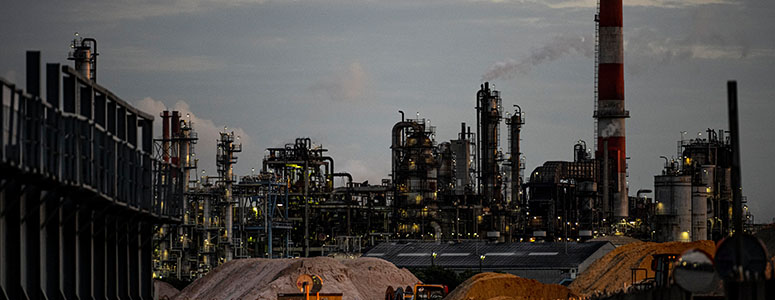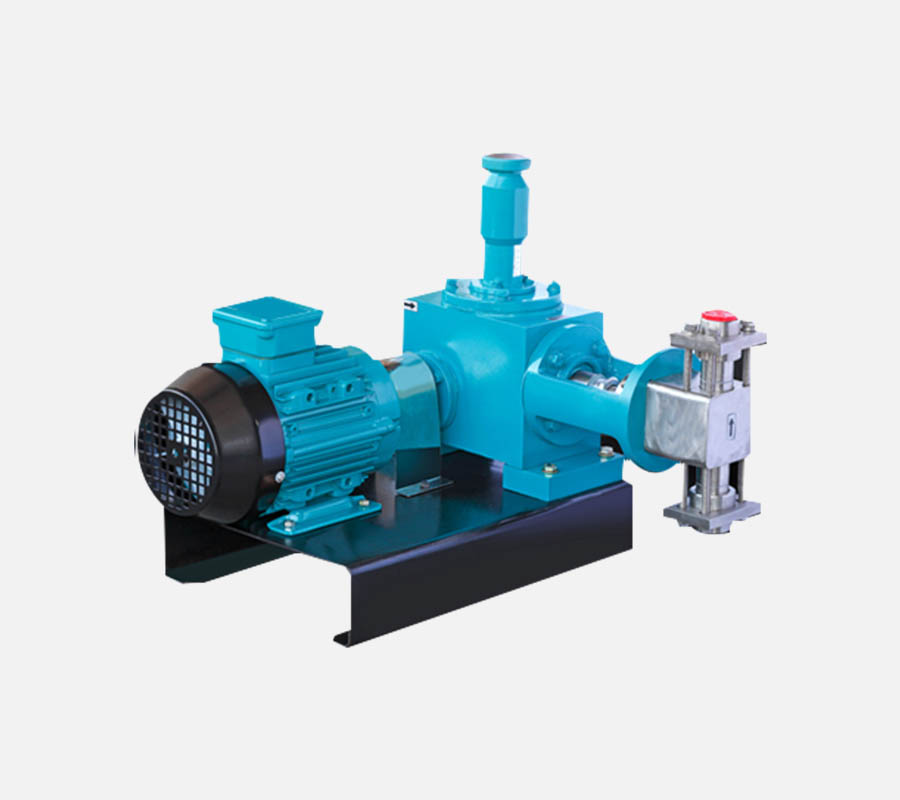Maintenance Tips for Ensuring Long Life of Plunger Pumps
Plunger pumps play a vital role in many industries, from oil & gas and water treatment to chemical processing and manufacturing. Known for their ability to handle high pressures and challenging fluids, these pumps are widely used in operations where precision and reliability are essential. Whether you are using a high pressure plunger pump, a plunger metering pump, or an industrial plunger pump, consistent maintenance is the key to ensuring their long-term performance and efficiency.
In India, industries rely heavily on plunger pumps for accurate dosing, fluid transfer, and chemical injection. As a leading Plunger Pump Manufacturer in India, Dosimix Technologies provides reliable solutions that are built for durability. But even the most robust pumps require proper care to extend their service life.
This guide will share practical maintenance tips that will help industries maximize the life of their plunger pumps, reduce downtime, and achieve cost-effective operations.
Understanding Why Plunger Pump Maintenance Matters
Plunger pumps are positive displacement pumps designed to move fluids at constant flow rates, even under high pressure. Their strength lies in their mechanical simplicity and ability to handle corrosive and viscous fluids. However, constant exposure to chemicals, varying pressures, and operational wear can reduce efficiency if not maintained properly.
When a plunger pump in India fails unexpectedly, it can lead to costly downtime, product loss, and even safety risks. Preventive maintenance not only avoids these issues but also ensures that the pump operates at peak efficiency, reducing energy costs and increasing return on investment.
Regular Inspection of Seals and Packing
One of the most common causes of wear in plunger pumps is seal and packing degradation. The seals prevent fluid leakage and maintain pressure levels. Over time, seals wear down due to friction, chemical exposure, and continuous operation.
Routine inspection of plunger packing ensures early detection of wear and prevents damage to the pump components. Replacing seals and packing at the right time helps maintain performance while avoiding costly repairs. Using compatible materials for packing, especially in corrosive environments, extends the pump’s operational life.
Maintaining Alignment and Drive System
A misaligned plunger pump can lead to vibration, excess noise, and damage to internal parts. Misalignment typically occurs due to improper installation, worn bearings, or shaft displacement. Regularly checking the alignment of the pump and motor ensures smooth operation and reduces stress on the pump system.
Similarly, inspecting the drive belts, couplings, and other connecting components helps avoid sudden breakdowns. Keeping the drive system well-maintained prevents unnecessary strain on the pump and prolongs its life.
Keeping Valves and Springs in Good Condition
The inlet and outlet valves are crucial in controlling fluid flow within a plunger metering pump or high pressure plunger pump. Worn or damaged valves lead to backflow, pressure loss, and reduced efficiency. Springs, which support the valves, also require regular inspection.
Cleaning valves to remove dirt, scaling, or chemical deposits improves flow consistency. Replacing damaged springs or valves prevents pump inefficiency and ensures precise fluid delivery, especially in dosing and injection applications.
Checking for Corrosion and Material Compatibility
Many plunger pumps are used for chemical transfer and chemical skid injection systems, where compatibility with fluids is essential. Exposure to aggressive chemicals or saline water can lead to corrosion, pitting, and premature failure of pump parts.
Regular inspections for corrosion signs, along with choosing the right materials (such as stainless steel or special alloys), help improve pump longevity. This is especially important in chemical, petrochemical, and water treatment plants where fluids are often corrosive.
Monitoring Pressure and Flow Performance
A well-maintained plunger pump should operate at consistent pressure and flow levels. Sudden fluctuations often indicate internal wear, clogged valves, or leakage. Installing pressure gauges and flow meters helps operators monitor real-time performance.
By comparing actual performance with the designed capacity of the pump, you can detect potential problems early and carry out preventive maintenance before failure occurs. This approach reduces downtime and ensures uninterrupted operations in industries where precision is critical.
Flushing and Cleaning After Operation
In industries where pumps handle chemicals, slurries, or viscous fluids, residues often accumulate inside the system. Without cleaning, these deposits harden and cause wear or blockages.
Regular flushing of the pump with clean water or recommended solvents prevents buildup. For example, after chemical dosing operations, flushing ensures that no leftover chemicals remain inside the pump, protecting seals and valves from corrosion. This simple practice significantly extends the pump’s service life.
Maintaining Spare Parts Inventory
Unexpected breakdowns can disrupt production and cause financial loss. Maintaining an inventory of critical spare parts such as seals, valves, springs, and gaskets ensures quick replacement during maintenance.
Working with a reliable Plunger Pump Manufacturer in India like Dosimix Technologies ensures that genuine spare parts are always available. This not only reduces downtime but also maintains pump integrity by avoiding low-quality substitutes.
Training Operators for Best Practices
Even the most advanced plunger pump requires skilled handling. Operators should be trained to identify early signs of trouble, such as unusual noise, vibration, or reduced pressure. Proper training helps in safe operation and prevents misuse that may lead to premature failure.
Companies should establish clear maintenance schedules and ensure operators follow manufacturer-recommended practices. Training also boosts workforce confidence in handling plunger pumps in India, reducing dependency on external technicians for basic maintenance.
Partnering with Reliable Manufacturers
The quality of the pump itself plays a significant role in determining how long it lasts. Choosing a trusted Plunger Pump Manufacturer in India ensures that you are investing in durable, precision-engineered pumps designed to handle demanding industrial conditions.
Dosimix Technologies, known as one of the Best Plunger Pumps Manufacturer in India, offers high-performance pumps designed for long service life, low maintenance, and reliable operation. Their expertise ensures industries get customized solutions for water treatment, chemical dosing, oil & gas, and other applications.
Final Thoughts
A plunger pump in India is a critical investment for industries where accuracy, durability, and performance are essential. From high pressure plunger pumps to plunger metering pumps, these systems can last for years if maintained properly. Regular inspections, proper lubrication, valve maintenance, corrosion checks, and timely cleaning all contribute to longer service life and reduced downtime.
By following these maintenance practices and partnering with a trusted brand like Dosimix Technologies – the Best Plunger Pumps Manufacturer in India, industries can ensure maximum reliability and efficiency. A proactive maintenance strategy not only protects your investment but also ensures uninterrupted operations in critical industrial applications.
Need a customized plunger pump for your India facility?
📞 Contact Dosimix Technologies today for design support, quotations, and expert guidance.
FAQs
Plunger pumps should undergo routine inspection every 3–6 months depending on usage. Heavy-duty applications, like chemical dosing or high pressure plunger pumps, may require more frequent checks.
The most common causes include worn seals, poor lubrication, misalignment, corrosion, and valve damage. Regular preventive maintenance helps avoid premature failure.
Yes, with the right material selection (like stainless steel or alloy), industrial plunger pumps are capable of handling corrosive and aggressive chemicals used in dosing, transfer, and chemical skid injection applications.
Leakage, pressure loss, and unusual noise often indicate worn-out seals or packing. Replacing them promptly protects the pump and ensures long service life.
Lubrication depends on the application. High-grade or chemically resistant oils are commonly recommended. Always follow the pump manufacturer’s guidelines for oil type and replacement intervals.
No. Running a plunger metering pump or industrial plunger pump dry can cause severe damage to seals, valves, and plungers. Always ensure proper fluid supply before operation.
Dosimix Technologies is recognized as the Best Plunger Pump Manufacturer in India, offering durable, high-performance pumps backed by reliable service and genuine spare parts for long-term use.
Regular maintenance such as inspecting seals, ensuring lubrication, monitoring pressure, cleaning after use, and using genuine spare parts are key practices to extend pump life.



